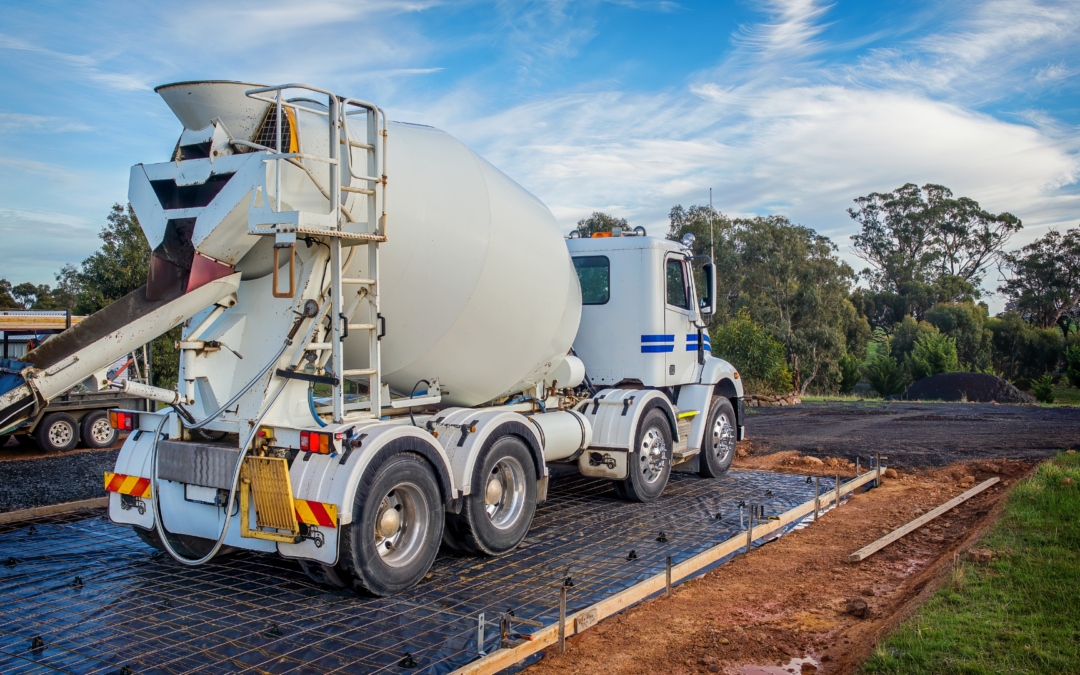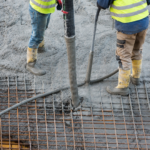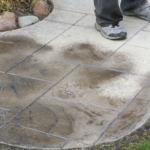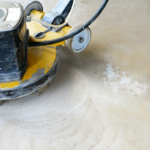When planning a construction project, budgeting is one of the most crucial steps. Whether you’re building a new patio, a driveway, or even constructing a house foundation, understanding the cost of pouring concrete can save you from unexpected expenses and ensure your project runs smoothly.
Here we’ll break down the various factors that influence the cost of pouring concrete, provide practical tips to manage expenses, and highlight essential details that every homeowner or builder should know.
The Basics of Concrete Pouring
What is Concrete Pouring?
Concrete pouring involves mixing water, cement, sand, and gravel to form a durable and versatile building material. This mixture is then poured into molds and allowed to harden. The process might seem straightforward, but it requires careful planning to ensure the final product is both strong and aesthetically pleasing.
Why Concrete is Popular
Concrete is the go-to material for many construction projects due to its durability, versatility, and cost-effectiveness. It can withstand various weather conditions, requires minimal maintenance, and offers a range of finishes to suit different design preferences.
Types of Concrete
There are several types of concrete, each suited for different applications. Standard concrete is commonly used for foundations and slabs, while high-strength concrete is ideal for heavy-duty structures. Decorative concrete, on the other hand, is used for aesthetic purposes in patios and driveways.
Key Factors Affecting Concrete Pouring Costs
Material Costs
The cost of materials significantly influences the total expense of pouring concrete. Cement, sand, gravel, and water are the primary ingredients. Prices can vary depending on the quality and source of these materials.
Labor Costs
Labor is another major factor. Skilled laborers are required to mix, pour, and finish the concrete. Labor costs can vary based on the project’s complexity and the local labor market.
Project Size and Scope
The project’s size and scope will also impact the overall cost. Larger projects require more materials and labor, thus increasing the total expense. Additionally, complex designs or finishes can add to the cost due to the extra time and skill needed.
Breakdown of Concrete Pouring Costs
Cost per Square Foot
On average, the cost to pour concrete ranges from $4 to $15 per square foot. This range depends on various factors, including the type of concrete and the project’s complexity.
Additional Expenses
Additional expenses may include permits, site preparation, and finishing touches like sealing or staining. These costs can add up quickly, so it’s essential to factor them into your budget.
Comparison with Other Materials
Compared to other building materials like asphalt or brick, concrete is often more cost-effective in the long run due to its durability and low maintenance requirements.
Practical Tips to Manage Concrete Pouring Costs
Choose the Right Contractor
Hiring a reputable contractor can save you money in the long run. Look for contractors with good reviews and competitive pricing. Don’t hesitate to ask for quotes from multiple contractors and compare them.
Plan Ahead
Planning ahead can help you avoid unnecessary expenses. Make sure you have all the necessary permits and have your site prepared before starting the project. This can prevent delays and additional costs.
Opt for Standard Designs
While decorative concrete can add a unique touch to your project, it can also significantly increase costs. If you’re on a tight budget, consider opting for standard designs and finishes.
Common Mistakes to Avoid
Skimping on Quality
While it might be tempting to cut costs by using cheaper materials or labor, this can lead to problems down the line. Poor-quality concrete can crack or deteriorate quickly, leading to costly repairs.
Ignoring Permits
Failing to obtain the necessary permits can result in fines and delays. Make sure you’re aware of all local regulations and have the required permits before starting your project.
Overlooking Maintenance
Even though concrete is a low-maintenance material, it still requires some upkeep. Sealing your concrete can extend its lifespan and keep it looking good for years to come.
DIY vs. Professional Concrete Pouring
Pros and Cons of DIY
Pouring concrete yourself can save on labor costs, but it requires skill and experience to get right. Mistakes can be costly to fix, so weigh the pros and cons carefully before deciding to go the DIY route.
When to Hire a Professional
For complex projects or when you’re unsure of your skills, hiring a professional is the best option. Professionals have the experience and equipment to ensure the job is done correctly and efficiently.
Cost Comparison
While DIY projects can save money initially, hiring a professional can save you from costly mistakes and rework. Consider your experience level and the project’s complexity when making your decision.
Reach Out to Greensboro Concrete Services Today
Pouring concrete is a complex process that requires careful consideration and planning. By understanding the various factors involved, such as material and labor costs, mix ratios, and finishing techniques, you can ensure a successful and durable result for your project.
At Greensboro Concrete Services, we have the expertise and experience to help you with all your concrete pouring needs. Whether you need advice on sustainable practices or want to explore innovative technologies like 3D printing or smart concrete, our team is here to assist you.
Don’t hesitate to reach out to us today to start your project. Let’s work together to create a high-quality, cost-effective, and sustainable solution for your construction needs!






